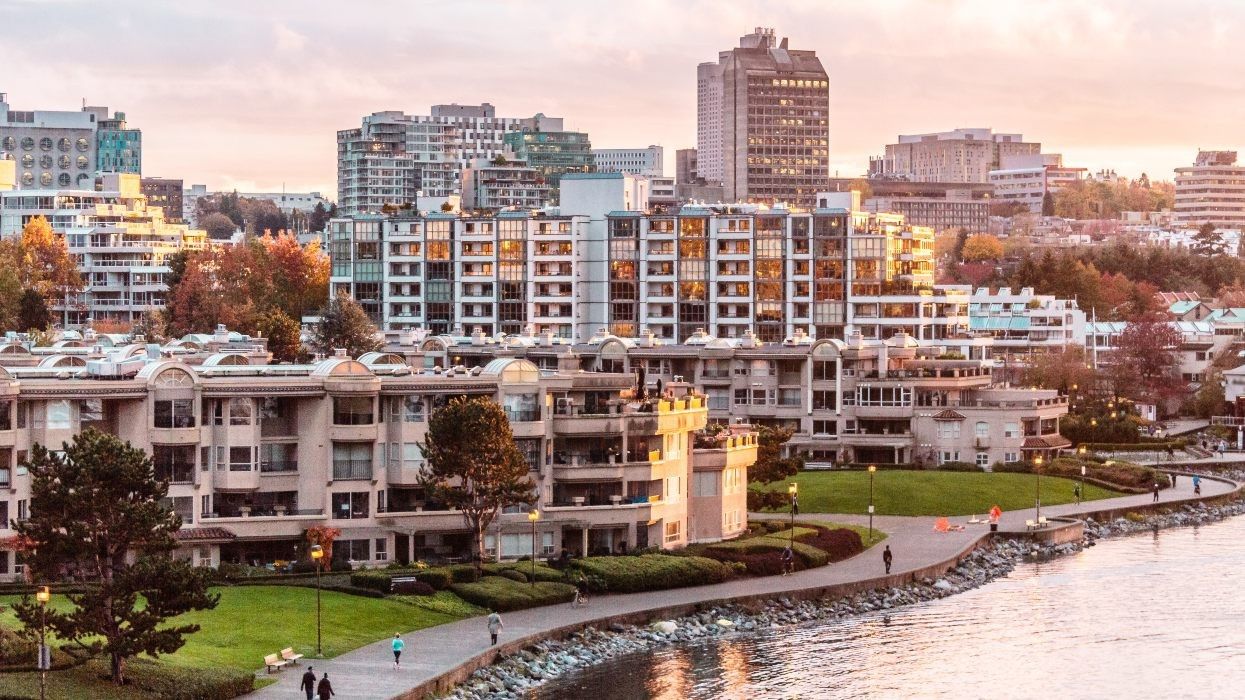On Wednesday, Vancouver City Council approved a motion that will see the City partner with non-profit organizations to make better use of City-owned land, with a focus on building more co-op housing, a housing type that has many benefits but has seen little investment in recent decades.
In traditional rental buildings, rents are set at whatever rates the market allows, as the owners need to recoup their investment — at the very least. With the co-op housing model, the building is cooperatively owned by its residents, essentially making them both the landlord and tenant. Because the residents own the building and live in it, the profit motivation is removed and monthly "housing charges" — called so because co-ops do not fall under the Residential Tenancy Act — can be set at much lower rates — enough to cover operating costs and mortgage payments.
The motion — titled "The Future of Co-op Housing: A Path to Delivering More Co-op Homes in Vancouver" — was introduced by Councillor Sarah Kirby-Yung, who notes that many existing co-ops are in need of renewal and that many of the co-ops that currently exist on City-owned land are low density and could be better utilized.
"Many co-op land leases in Vancouver are due to expire over the next few decades having been signed 40 or more years ago," she pointed out in her motion. "They need renewal and a new model and path forward. Critically, at the same time, many of the dozens of co-op sites on City-owned land are very low density today and have the ability to accommodate new co-ops and new co-op homes now."
The primary example Kirby-Yung points to is the False Creek South area, the southern coast of False Creek between the Granville Bridge and Cambie Bridge. The False Creek South area is comprised of approximately 100 acres of land and the City of Vancouver owns and manages about 80 of those acres.
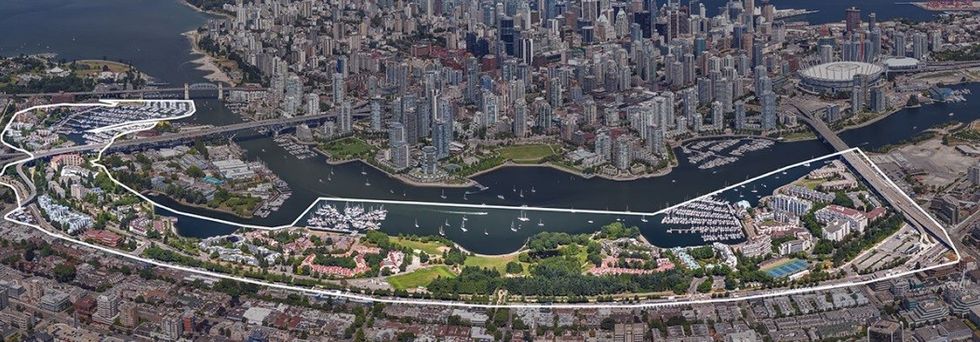
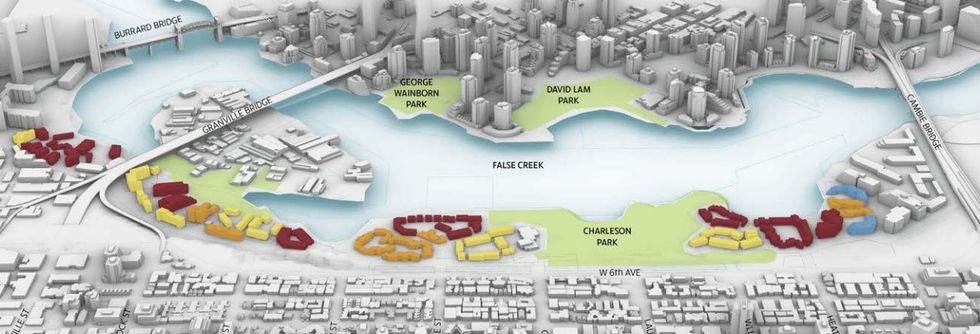
Several co-ops already exist in the neighbourhood, such as the Connaught Co-Op and the Alder Bay Co-Op, and Council commissioned public engagement in 2021, under former-Mayor Kennedy Stewart, focused on the opportunities for more housing there.
"With leases on City land expiring in the next 15-25 years, Council has the opportunity to consider a 21st century renewal of the original vision for False Creek South established in the 1970s," a City report of that engagement concluded. The City found that the public was in support of using that City-owned land to create more affordable housing and generally agreed with a phased development approach that would see vacant lands developed before existing buildings.
That development approach would unfold across more than two decades and envisioned new buildings constructed all along W 6th Avenue. Residents of existing buildings would be relocated to those new buildings, and then those pre-existing buildings would be redeveloped into higher-density buildings.
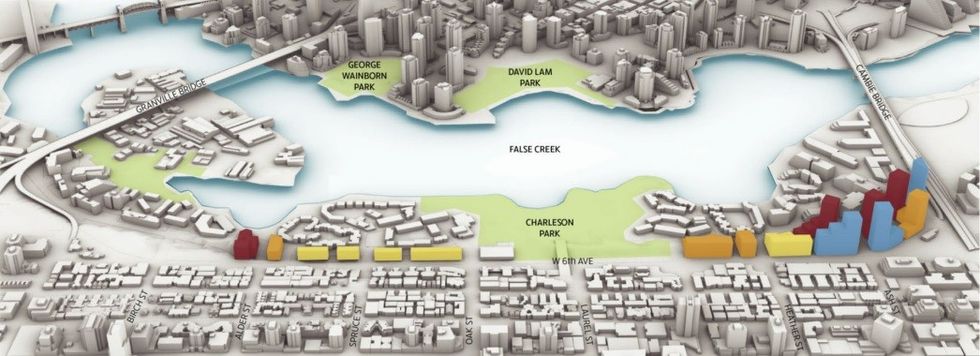
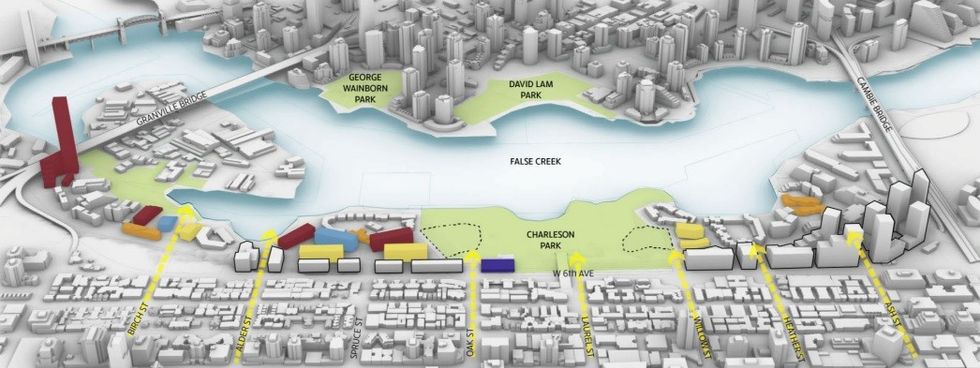
Kirby-Yung's motion builds off of that, with the City now beginning the work of updating and enhancing that development plan, with a focus on co-op housing and other types of housing as well.
The motion also asked that the City find ways to partner with the Co-Op Housing Federation of BC (CHF BC) and other non-profits to explore "a new model of co-op housing that retains City ownership of City-owned land, and supports community land trust models and a consolidated maintenance and asset management model."
According to Kirby-Yung, there currently exists 3,738 co-op units on City-owned land, which represents about half of all the co-op units in Vancouver.
Furthermore, Kirby-Yung's motion directs staff to identify projects in the area that can proceed under the Province's recently announced BC Builds program, which matches owners of under-utililized land with developers. BC Builds was officially unveiled last month and four projects have been announced to date.
"Today marks an exciting step forward," said CHF BC CEO Thom Armstrong in a press release on Wednesday. "This initiative represents a historic opportunity to expand co-op housing options in partnership with organizations like the CHF BC and the Community Land Trust," the latter of which is the CHF BC's real estate development arm to acquire, develop, and steward co-ops and community-led housing.
"There is a growing demand for co-op housing in Vancouver," added Kirby-Yung. "This commitment could be a game-changer for expanding affordable housing, reflecting Council's dedication to making Vancouver an attainable and vibrant city for generations to come."
